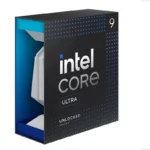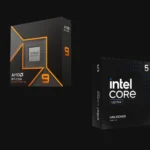Arm Holdings has taken a drastic step in its ongoing legal dispute with Qualcomm. The chip design firm is canceling Qualcomm’s license to use Arm intellectual property for manufacturing Snapdragon chips. This move could severely impact Qualcomm’s ability to produce its popular mobile processors and other AI-enabled chips.
The decision comes after years of tension between the two tech giants. Qualcomm recently unveiled new Oryon-based chips for mobile and automotive applications using Arm’s architecture. The license cancellation, if enforced after a 60-day notice period, may derail Qualcomm’s plans for these new products.
This development sends shockwaves through the semiconductor industry. Arm’s designs are crucial for many mobile devices. The loss of this license could force Qualcomm to rethink its chip strategy. It also highlights the power Arm holds in the mobile technology ecosystem.
Arm vs. Qualcomm: A Clash of Tech Titans
In a move that sent shockwaves through the tech industry, Arm has reportedly revoked Qualcomm’s license to manufacture its widely used Snapdragon chips. This unexpected development stems from a dispute over Qualcomm’s 2021 acquisition of Nuvia, a chip design startup founded by former Apple engineers. Let’s explore the details of this high-stakes conflict and its potential ramifications.
The Licensing Dispute: A Battle for Control
Arm licenses its chip architecture to various companies, including Qualcomm, which uses it to develop its Snapdragon processors. These chips power a vast range of devices, from smartphones and laptops to cars and IoT devices. The heart of the dispute lies in Arm’s assertion that Qualcomm violated its licensing agreement by transferring Nuvia’s licenses without consent. Arm is essentially seeking to renegotiate the terms, potentially demanding higher royalties or greater control over how Qualcomm uses its technology.
Qualcomm’s Stance: Defending Its Rights
Qualcomm has vehemently denied Arm’s claims, calling them “baseless.” The company argues that it has broad rights under its existing architecture license and shouldn’t be forced to renegotiate. Qualcomm maintains that it complied with the terms of its agreement and accuses Arm of using “unfounded threats” to extract more favorable terms.
Potential Fallout: A Reshaped Tech Landscape
The outcome of this clash could significantly impact the tech industry. If Arm prevails, Qualcomm could be forced to halt production of Snapdragon chips, potentially disrupting the supply of smartphones, PCs, and other devices that rely on these processors. This could create opportunities for competitors to gain market share and accelerate Qualcomm’s efforts to develop its own CPU architecture independent of Arm.
Beyond the Immediate Impact: Long-Term Implications
This dispute highlights the growing tension between Arm and its licensees. Arm, which recently abandoned its plans for an IPO, may be seeking to assert greater control over its intellectual property and increase its revenue streams. This could lead to further conflicts with other licensees and potentially drive some companies to explore alternative architectures like RISC-V.
Unique Insights
- Arm’s Strategic Shift: Some industry analysts believe that Arm’s aggressive stance reflects a broader strategic shift. By tightening its grip on licensing and potentially demanding higher royalties, Arm aims to maximize its revenue and profitability.
- The Rise of RISC-V: The conflict between Arm and Qualcomm could accelerate the adoption of RISC-V, an open-source instruction set architecture. RISC-V offers a compelling alternative to Arm, particularly for companies seeking greater control and flexibility. Qualcomm has already expressed interest in RISC-V and could potentially leverage it to reduce its reliance on Arm.
- Legal Complexities: The dispute between Arm and Qualcomm is likely to be protracted and complex, with potential legal battles looming. The outcome will depend on the interpretation of licensing agreements and intellectual property rights, which could have far-reaching implications for the industry.
Key Takeaways: Arm vs. Qualcomm
| Aspect | Description |
|---|---|
| Dispute | Arm revoked Qualcomm’s license to manufacture Snapdragon chips, citing a breach of contract related to the Nuvia acquisition. |
| Qualcomm’s Response | Qualcomm denies Arm’s claims and accuses Arm of using threats to renegotiate licensing terms. |
| Potential Impact | Disruption of Snapdragon chip production, increased competition in the chip market, and potential legal battles. |
| Long-Term Implications | Arm’s assertive stance could lead to further conflicts with licensees and accelerate the adoption of alternative architectures like RISC-V. |
Key Takeaways
- Arm is canceling Qualcomm’s chip design license amid a legal battle
- This decision could disrupt Qualcomm’s production of Snapdragon and AI chips
- The move impacts the broader semiconductor industry and mobile tech landscape
Implications of ARM Canceling Qualcomm’s License
ARM’s decision to cancel Qualcomm’s license has far-reaching effects on the tech industry. This move could reshape the mobile chip market and alter the future of smartphone processors.
Legal and Industry Ramifications
ARM’s choice to end Qualcomm’s license might spark a legal battle. The two companies may end up in court over this issue. This dispute could impact other chip makers who use ARM designs.
The tech world is watching closely. ARM’s move might change how companies work together in the chip industry. Other firms may rethink their partnerships with ARM.
This situation could also affect ARM’s planned IPO. Investors might worry about the company’s stability and future growth.
Impact on Snapdragon Product Line
Qualcomm’s Snapdragon chips power many top smartphones. Without an ARM license, Qualcomm may struggle to make new chips. This could delay or stop the release of new Snapdragon products.
Phone makers might have to find new chip suppliers. This could lead to changes in smartphone performance and features. Consumers might see fewer choices in high-end phones.
Qualcomm may need to invest more in its own chip designs. This could raise costs and slow down product launches.
Future of ARM and Qualcomm Partnership
The split between ARM and Qualcomm may not be final. They might work out a new deal in the future. But for now, their working relationship seems damaged.
Qualcomm might look for other partners to design chips. They could turn to RISC-V or other open standards. This shift could change the mobile chip market for years to come.
ARM might lose a big customer in Qualcomm. This could hurt ARM’s profits and market share. It may push ARM to work more closely with other chip makers like MediaTek or Samsung.







